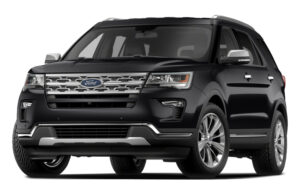Contrary to popular belief, your actual credit score only plays a small part when it comes time for the bank to approve your new car loan. The banks will always take a “big picture” approach in their decision-making process.
Here are the top 5 items banks consider:
Personal character – how have you paid your previous debts?
The bank will look at any debt you have had that’s still reporting to your credit bureau (credit cards, auto loans, lines of credit, mortgages, cell phones, etc.). Individual pieces of debt are called trade lines. Each trade line will have a ranking (0-9) as well as a record of how many late payments you had (if any). If you have had good payment history, the bank will assume that trend will continue, making it more likely they will approve your loan.
Capacity – how much do you currently owe and how much income do you make?
Even if you have good payment history, this could change if your debts become too large. Banks want to make sure they’re not extending a loan with a payment that is too high for you to pay back. The bank will calculate how much you currently owe on all your debts and compare the total payment to your monthly income.
Collateral – how much money do you have?
One way to signal to the bank that you can pay your new loan is to pay a portion of it up front with either a down payment or equity in a vehicle trade-in. Having any sort of collateral is always a preference for banks when deciding whether to grant an approval. Although it’s not always required, having collateral is a good way to strengthen your application if you have had some credit challenges in the past. This is because having collateral minimizes the total loan amount, which reduces risk for the bank.
Loan to Value (LTV) – what is your new vehicle worth compared to the value of the loan?
One item that often gets overlooked is LTV. If LTV is high (the amount of the loan is high compared to the value of the vehicle), then the bank will assume a higher risk when approving that loan. For example, if you are applying for a $20,000 loan but the vehicle you’re buying is only worth $10,000, the bank may not be able to recoup lost funds if the vehicle gets repossessed. This can result in your application getting declined even if you have a good credit history. You can lower the LTV by adding collateral to the loan to strengthen the application.
Inquiries – who else has pulled your credit?
Your credit bureau will show a list of other companies who have viewed your credit history. A long list of recent inquiries to your credit bureau could give the impression that you are applying for more than one loan. This will make it harder for the bank to assess the loan risk appropriately. However, this is not always the case. For example, if all of the recent inquiries on your credit are from known auto-lenders, then the bank would likely assume you were shopping for a new vehicle, and not for multiple loans.

Overall, banks will attempt to look at the “big picture” when deciding whether to approve your loan for your new vehicle. If you are looking for an auto loan and you’re not sure if you qualify, give Door to Door Auto Sales a call at 1-855-829-8408 and we would be happy to answer any questions you may have!





